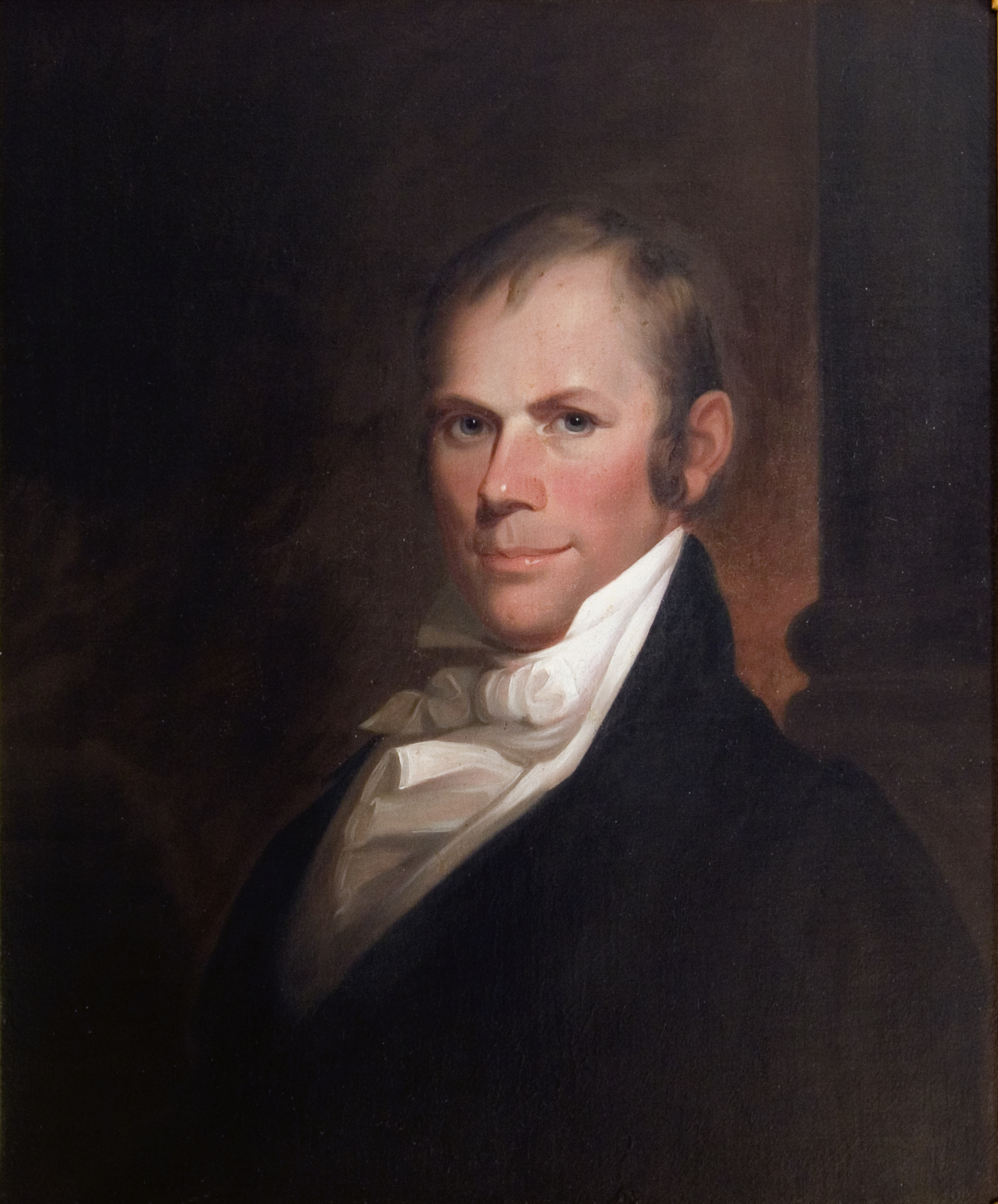Speech at the public dinner at Fowler's Garden, Lexington, Kentucky, May 16, 1829, printed in Niles' Weekly Register, Vol. 36 (1829), at p. 399.
Henry Clay: Zitate auf Englisch
“It is the thing protected, not the instrument of protection, that involves you in war.”
Speech on the Increase of the Navy, House of Representatives (22 January 1812).
Kontext: Sir, if you wish to avoid foreign commerce; give up all your prosperity. It is the thing protected, not the instrument of protection, that involves you in war. Commerce engenders collision, collision war, and war, the argument supposes, leads to despotism. Would the councils of that statesman be deemed who would recommend that the nation should be unarmed—that in the art of war, the material spirit, and martial exercises, should be prohibited—…—and that the great body of the people should be taught that the national happiness was to be found in perpetual peace alone? No, sir.
Speech in the Senate on the National Bank Charter (February 11, 1811).
Reported in The Clay Code, or Text-Book of Eloquence, a Collection of Axioms, Apothegms, Sentiments … Gathered from the Public Speeches of Henry Clay, ed. G. Vandenhoff (1844), p. 93.
Speech on the Emancipation of South America], House of Representatives (24 March 1818); The Life and Speeches of the Hon. Henry Clay, vol. I (1857), ed. Daniel Mallory
Speech on the Increase of the Navy, House of Representatives (22 January 1812).
“I have no commiseration for princes. My sympathies are reserved for the great mass of mankind ….”
Speech on the Line of the Perdido, Senate (25 December 1810).
Speech in the Senate on the National Bank Charter (February 11, 1811).
“How often are we forced to charge fortune with partiality towards the unjust!”
Letter (4 December 1801), printed in Bartlett's Familiar Quotations (2002)
Upon hearing (in December 1839) that he had been rejected in favor of William Henry Harrison as the Whig Party nominee for President in the election of 1840.
Quoted by Henry A. Wise, who claimed to have heard it firsthand, in Seven Decades of the Union (1872), ch. VI.
“I would rather be right than be President.”
Speech, Senate (1850), referring to the Compromise Measures.
Speech in the Senate, February 14, 1850, in response to a speech by Senator Henry S. Foote of Mississippi, who had "lectured" Clay on the allegiance which he owed to the South as a senator from a Southern state. From The Life, Correspondence, and Speeches of Henry Clay (Vol. 3); ed. Calvin Colton: A. S. Barnes & Co., 1857.
Letter to David Mundell (12 October 1848) in which Clay reflects upon his failure to win the Presidency.
“If you wish to avoid foreign collision, you had better abandon the ocean.”
Speech on the Increase of the Navy, House of Representatives (22 January 1812).
Speech on the New Army Bill, House of Representatives, (8 January 1813), paraphrasing Josiah Quincy III's "amicably if they can, violently if they must"; The Life and Speeches of the Hon. Henry Clay, vol. I (1857), ed. Daniel Mallory
Speech on the Line of the Perdido, Senate (25 December 1810).
Speech on the Line of the Perdido, Senate (25 December 1810).
Speech on the Line of the Perdido, Senate (25 December 1810).
“An oppressed people are authorized, whenever they can, to rise and break their fetters.”
Speech on the Emancipation of South America http://www.bartleby.com/268/9/5.html, House of Representatives (24 March 1818); The Life and Speeches of the Hon. Henry Clay, vol. I (1857), ed. Daniel Mallory
Speech in the Senate on the National Bank Charter (February 11, 1811).
